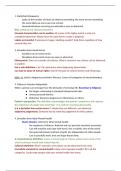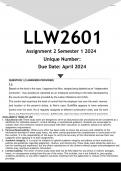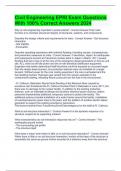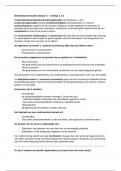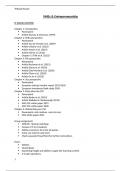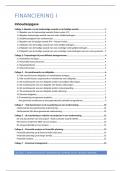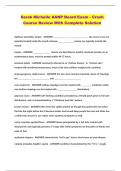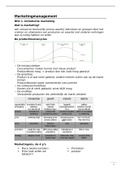Summary
Summary AQA A level psychology paper 1 psychopathology - definitions of abnormality
- Course
- Institution
This document contains the content and evaluations for the topic definitions of abnormality for the psychopathology topic in paper 1 of psychology AQA A level. All content follows the AQA specification.
[Show more]
